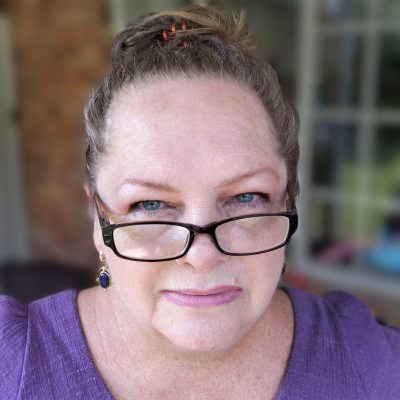
Near Death Experience Panel Discussion
A FIRST IN SOUTH AFRICA, BE THERE!
11.11 Sunday 23 July KwazuluSpirit Festival
What dying taught me and how I was wrong.
By Colleen-Joy Page
“Colleen, we’re going to cut your head open… from here to here,” my doctor said, tracing his finger along my hairline from ear to ear.
He shared how they would open the front of my face to remove the egg-size benign fibrous dysplasia tumour. If we didn’t remove it, I would go blind.
Then he asked, “Is that okay, Colleen? Can we do this?”
Pulling him aside, my mother questioned why he was giving me the details and asking my permission, “She’s only four.”
“She’s my patient,” he replied, “Even at four, she has every right to make this decision.”
I said yes to the surgery because I felt I’d seen enough to trust him with my life and would have done anything to be free of the monster-making tumour we called my bump.
I said yes, with the hope of freedom. Freedom from the gasping of adults, the wrinkled-nosed pointing from children and the intrusive “What’s wrong with your daughter?” questions from strangers. Freedom from the guilt of watching my family pretend to be happy when I knew they weren’t. When everyone shouted “Happy New Year” at our recent year’s new year party, I knew why my mother and aunt were crying.
I said yes, hoping to be free of mirrors and photographs where the little girl who stared back at me had a massive eye-brow-raising lump that pushed her right eye half closed and turned my name Colleen (Irish for pretty little girl) into a cruel irony.
After saying yes, there were CAT scans and too much poking and prodding, then an all-day surgery happened, where masked people in green worked tirelessly to free me.
Days later, free of mummy head bandages, sitting in my hospital bed with a fist full of brand-new wax crayons given to me by my cousin and aunt, I was compelled to draw a haunting vision of a colourful tunnel of light.
I became frustrated as I filled my paper from corner to corner with oranges, yellows and blues. The crayon colors didn’t look anything like what I remembered. My little hands also couldn’t do the job properly. I wanted to draw what I felt — I had been without my body flying through a bright tunnel of light.
My young mind tried to find a word for what I was drawing – and the word was home.
This home was complete love, peace and joy. No tumours, no fear of being looked at, no guilt, no secret, silent suffering. Only pure love and knowing I was okay.
No more seeing through tiny windows called eyes that could go blind. No dragging a small breakable body around that hurt. I was home.
After drawing home, I felt lighter, as if the feeling of home had stayed.
Later that night alone, I stared at my little hands and the arms that grew them with fascination, the way the fingers moved and the little blonde hairs lit by the fluorescent ward lights. My body was fascinating, but I knew I was not it. What I was, I couldn’t say, but it was something free.
Days later, while packing my bags, mom announced, “Today’s a big day, Col — your doctor says you can go home.” Home? Which home? I was confused.
When a single thought stole home
And then, a single thought robbed me. It robbed me of my peace, love and freedom.
‘My home is a place,’ I believed. ‘Like my family home.’
Because my home was now a place, I believed I was no longer there.
Like climbing into a dark confined box full of terror and pain, the peace, the warm love, the fascination with my miracle of a body was gone. My flesh changed from something beautiful and strange into a prison.
As mom drove us back home, she commented, “Your operation was very big, sweetheart,” I heard the strain in her voice. “You died twice and the doctors had to use a machine to shock your heart with electricity. So you’ve got burns on your back, but it’s okay; your doctor says you’re doing very well…”
Her voice faded as I wondered, ‘I died.’
I knew about death. Pets died and then they were gone. But I wasn’t gone; I was home.
My heart ached with the longing, ‘I want to go back. I want to go to my real home.’
The daily battle of homesickness and the fear of being insane was lonely. The belief that home was a place you went to only when you died caused me to believe that I would not be able to find it again while still in this body. So I secretly hated everything about being here.
I found home where I was looking from.
Working with past-life and life-between-life regressions (with Dr Michael Newton as a board director) for a few years helped me understand my young NDE home experience. Dr. Newton’s research and my experience showed how we could tune in to the thoughts streaming from the human body-mind OR the soul (and sometimes a mix). When we’re overwhelmed by fear and the survival programming of the body, we can feel shut off from our souls. I’ve spent much of my life learning how to tune in deeper than the surface mind to hear and translate soul wisdom.
Tuning into the wisdom of the soul was my way of surviving. This open seeing and being had begun to heal my shyness, given me a sense of purpose and got me through the challenges of my early adult life.
But I still thought of home as a place. After all, don’t many of us remember leaving earth when we die and ‘travelling’ to a home of light?
My soul clarified this slight misinterpretation (which is understandable because of the limitations of the human linear mind).
These are some of the helpful insights I learned:
A large part of our soul’s consciousness never leaves home – you are both here and there.
It’s more accurate to describe going home as changing radio stations from BODY FM to SOUL FM (we can learn to do this whenever we want to).
Home is not a PLACE; it’s what we are – the true, unchanging self – whose nature is unconditioned peace, love and joy.
The open-openness we feel in meditation, the expansive beauty we feel in nature, the unifying love and the peace that surpasses understanding is the ordinary experience of being HOME as the SELF.
Ultimately there is no here or there, only the non-dual self. The soul arises in the self and its role is to harvest wisdom.
Home is not somewhere out there but somewhere in here.
Believing confused untrue thoughts hides our true seeing and being.
We don’t need to die to be home.
Being free of homesickness changed everything. That’s why I teach the skills and tools to change radio stations, dig wisdom wells and find our way home. And to guide others to do the same.
You’re not doing anything wrong if you find living on earth hard. Believing we are separate fear-filled creatures crawling around the surface of a grab-what-you-can-while-you-can planet is heartbreaking. Finding home isn’t a magic wand of love, light and rainbows. It’s medicinal. And it might be what we need to wake up our species.
We are a species blinkered and blinded by a lack of clear-seeing wisdom.
But we can change things. We can drink from the well of inner wisdom to heal the divisive walls of the mind, claim wholeness for the not-so-holy holes of our emotional hearts and learn to live ordinary enlightened lives radiating home, even while we watch Netflix and send emails. Doing the best we can.
What thoughts rob you of your real home as the real self every day?
When your inner teacher meets your inner student, you realise you are always home, even when you forget. Like Mondays or on days when getting out of bed is an act of courage.
Dying gave me a crib note so that I would long to find it again and not get too distracted by the shiny objects of what Hollywood tells us to want.
The wisdom of home has taught me that peace, love and joy are not things to lose or find but are what the real self is made of.
Guiding ourselves and others to the true home of the true self is the highest expression of love.
Colleen-Joy is an author and teacher who guides guides. She has created over 50 powerful question frames, which her InnerLifeSkills Master Coach School teaches. Leaders, coaches, healers and guides in over 60 countries use her teachings and processes.
www.colleen-joy.com www.innerlifeskills.com


